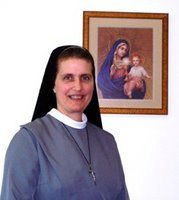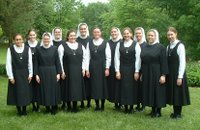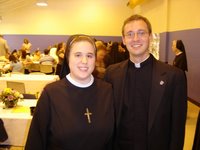Pope Benedict XVI called the faithful to, following example of St. Matthew, to serve Christ unreservedly:
Obviously Matthew understood that familiarity with Jesus did not allow him to continue with activities disapproved by God. One can easily intuit that it can also be applied to the present: Today one cannot admit attachment to what is incompatible with the following of Jesus, as are dishonest riches. Once he said openly: "If you would be perfect, go, sell what you possess and give to the poor, and you will have treasure in heaven; and come, follow me" (Matthew 19:21).The example of this tax collector, this "gift of God," remind us that "Jesus excludes no one from his friendship" and that "The good proclamation of the Gospel consists precisely in this, in the offering of God's grace to the sinner!"
Even so, there is another lesson we learn from Matthew, said the Pontiff: "He who seems to be farthest from holiness might well become a model of acceptance of God's mercy enabling one to glimpse its marvelous effects in his life."
May the great Apostle watch over my nephew who bears his name!
Saint Matthew, pray for us!






